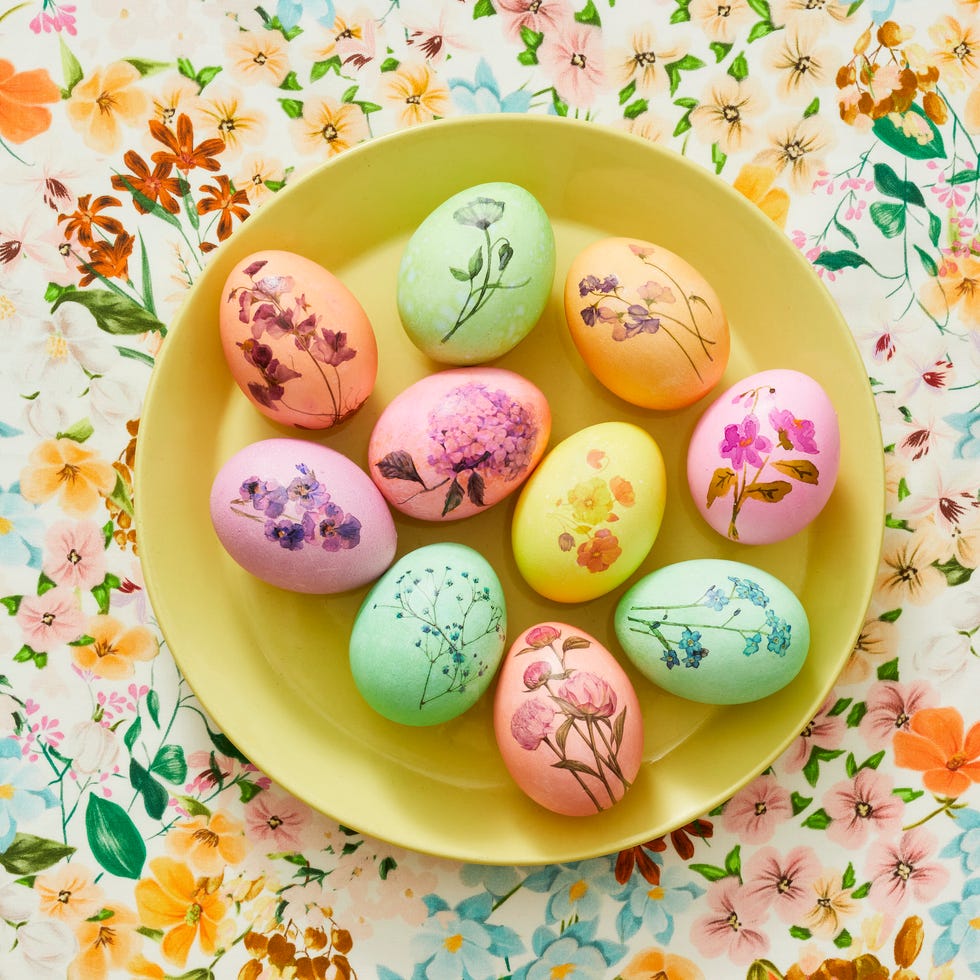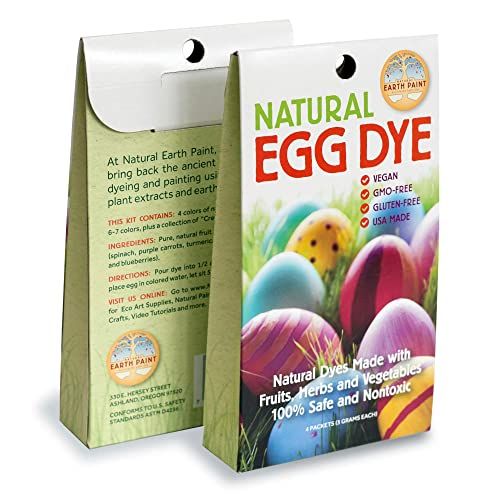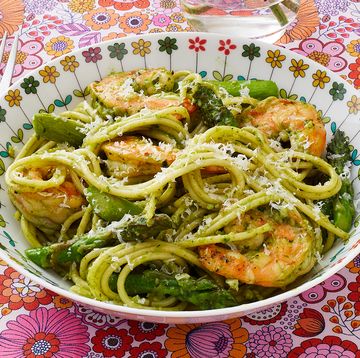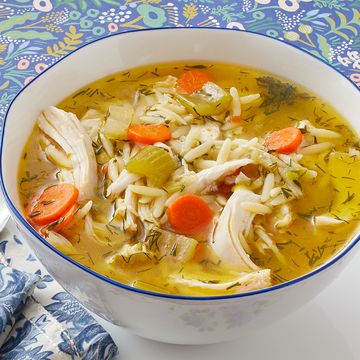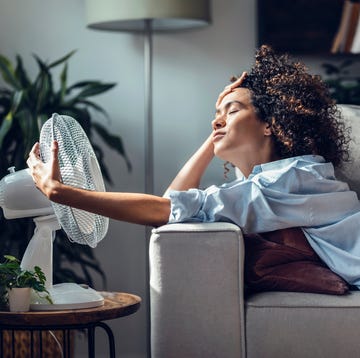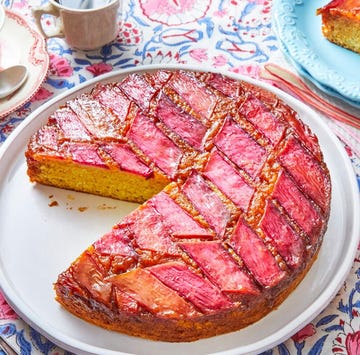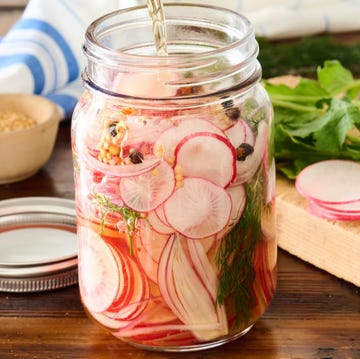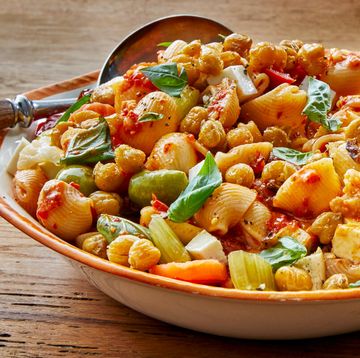Dyeing eggs is an Easter tradition for many families. It's right up there with eating tons of chocolate bunnies and sitting down to a big Easter brunch. The colorful rainbow eggs with festive festive designs are fun to look at, but once the Easter egg hunt is over, you may be left wondering: Can you eat dyed Easter eggs? After all, they're made from hard-boiled eggs (and we'd hate to miss out on a good egg salad sandwich). But it turns out, not all dyed Easter eggs are safe to eat. Here's what you need to know about if you can eat those pretty dyed eggs.
Cooking eggs, pulling out the messy egg dye kits, and hiding them for the big hunt takes time and effort—so it's no wonder you want to take full advantage of your eggs. But before you start chopping 'em up for a bowl of Southern-style potato salad, you need to if they're safe to eat. The eggs need to be cooked properly, but they also need to be refrigerated according to FDA egg safety regulations—something that’s hard to do when they're spread throughout the backyard or used as Easter basket decorations. To top it off, not all egg dyes are safe for consumption. Rest assured, some dyed eggs are safe to eat, just as long as you take the precautions listed below.
Can you eat dyed Easter eggs?
To get to the bottom of the question at hand: Can you eat dyed eggs? The answer is yes, but only if you've followed the steps below for safely dyeing eggs! Enjoy naturally dyed eggs with a touch of sea salt, make deviled eggs, or use them to make this classic Easter bread! Of course, if your eggs have been compromised at all (if there are cracks in the egg, if chemical food dye was used, or if they've been sitting out for a long period of time), don't eat the eggs. Instead, use them as decoration for your Easter table centerpiece.
How do you prepare hard-boiled eggs for dyeing?
No matter if you're hard-boiling eggs to eat or dye, it's important to do it right. The first step is to always start with fresh eggs. Not sure how fresh those eggs in the back of your fridge really are? Try the egg float water test. (If an egg sinks, it's good; if it floats, be sure to throw it out and go buy more.) You'll also want to avoid eating any cracked eggs. You can still decorate those, but don't eat them as they could be contaminated.
Which Easter egg dyes are safe to eat?
Not all egg dyes are the same—some are purely decorative while others made with food-safe coloring. If you plan to eat the eggs, stay away from any chemical dyes, paints, or other egg designs using un-natural techniques. Instead, opt for dyes made with food coloring or natural dyes made from fruits and vegetables. What about eggs dyed with vinegar? Vinegar is often used to help the dye adhere to the eggshell. As long as the dye you use is food-safe, you can still eat the eggs if vinegar is applied.
How do you store dyed Easter eggs?
When it comes to Easter eggs, one of the most important things to remember is refrigeration. Oftentimes, the decorated eggs will hang out for hours hidden in the backyard or tucked into Easter decorations around the house. But this can cause foodborne illnesses, according to the U.S. Food and Drug Administration. "Never leave cooked eggs or egg dishes out of the refrigerator for more than two hours or for more than one hour when temperatures are above 90 degrees," the FDA says. Once the holiday is over, if you're wondering how long hard-boiled eggs last, know this: if you've stored the eggs properly, your Easter eggs should last up to one week in the refrigerator. If they've been left out too long, play it safe and ditch them.

